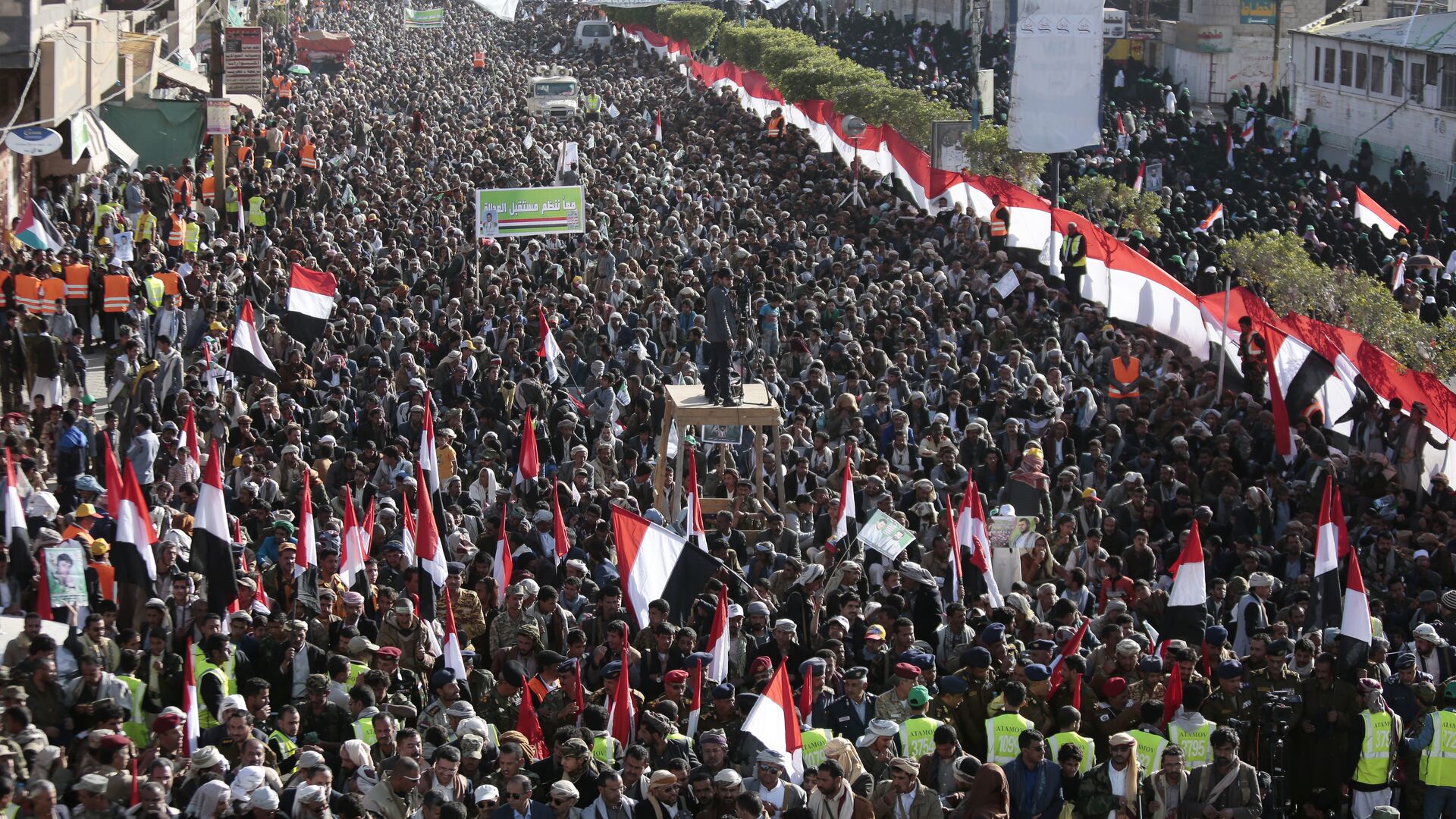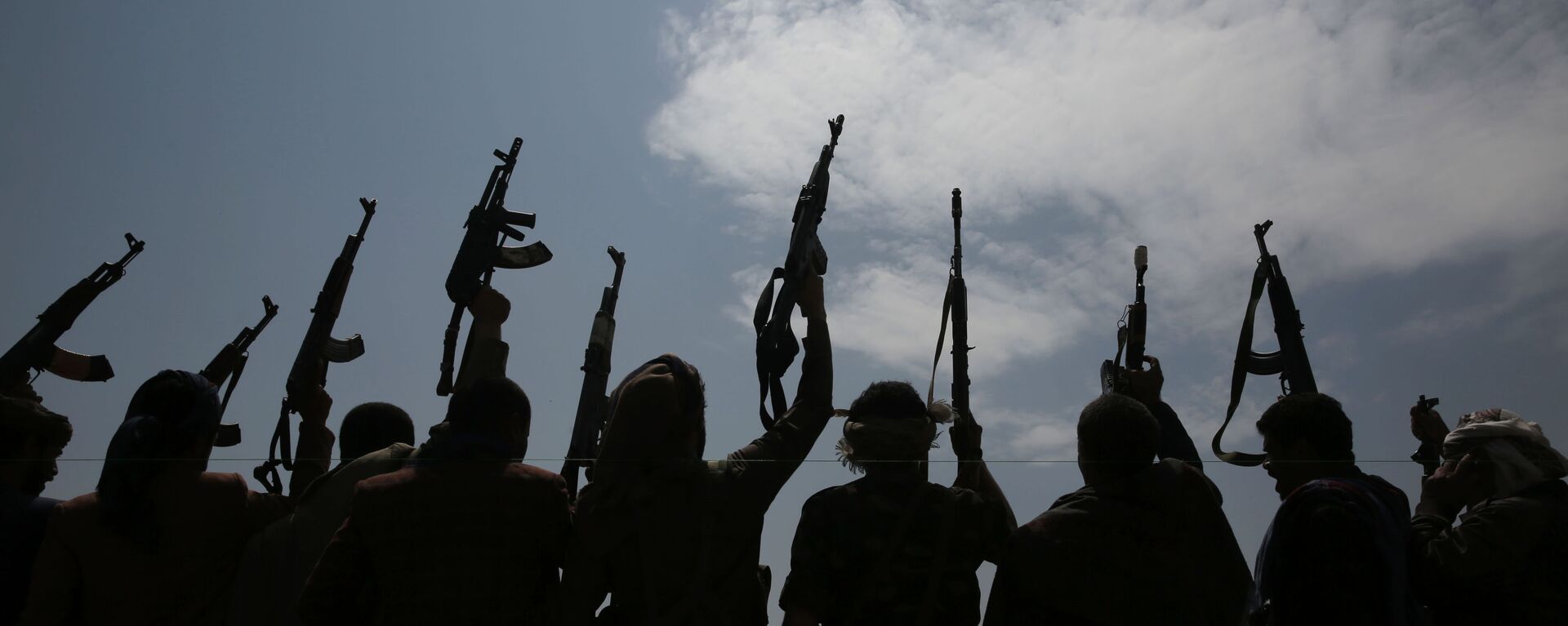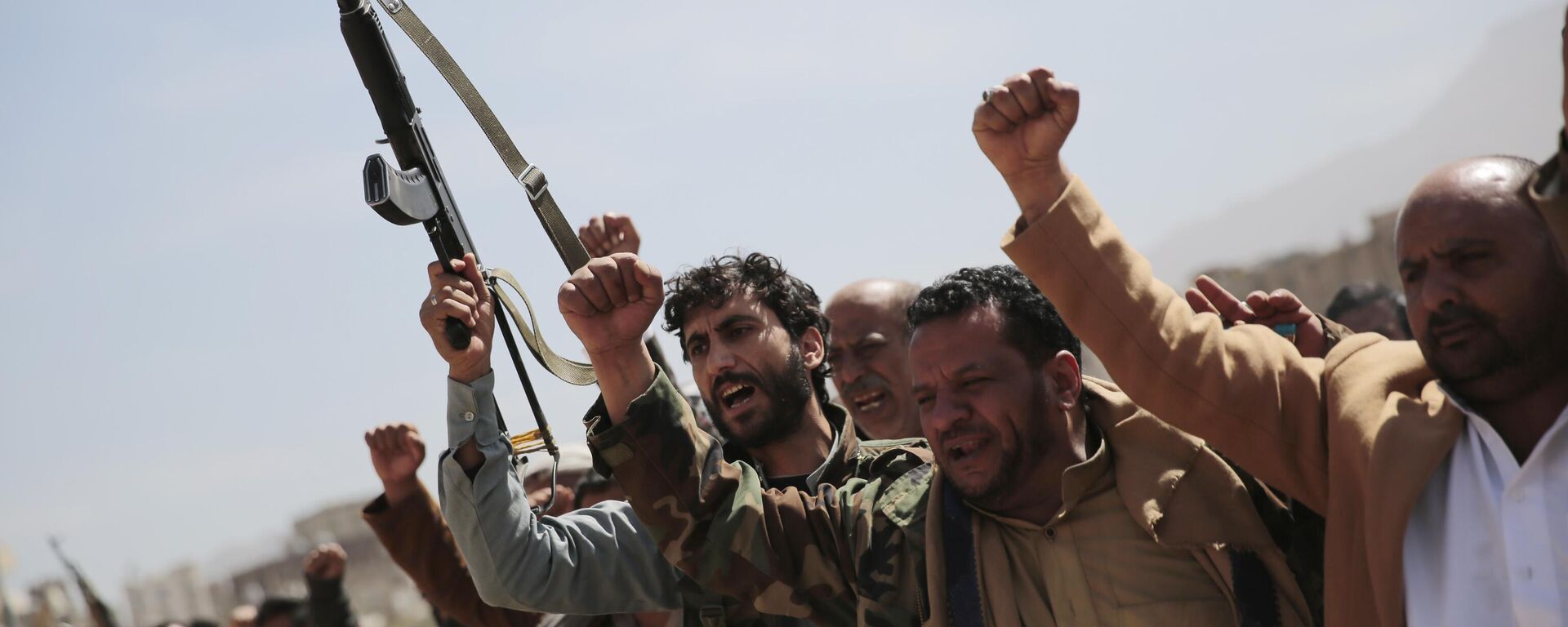Israel ‘Not Prepared’ to Face Houthi Gaza Deployment - However ‘Rhetorical’ the Threat
22:02 GMT 20.12.2023 (Updated: 10:25 GMT 22.12.2023)

© AP Photo / Hani Mohammed
Subscribe
The war in Gaza has raged since early October, when in response to deadly ground attacks on Israeli border towns by Palestinian militants, Israel launched an all-out assault that has killed an estimated 20,000 people and displaced almost the entire population of 2.3 million. Now, sympathetic regional powers are threatening to get involved.
As Israel’s invasion of Gaza rages on, the Yemeni Ansarallah movement, better known as the Houthis, have joined the regional struggle against both Israeli forces and their American allies. Their latest move has been to threaten to dispatch ground forces to Gaza to fight the Israeli Defense Forces (IDF) alongside other Palestinian groups like Hamas, Palestinian Islamic Jihad, and the Al-Aqsa Martyrs Brigade.
Sputnik spoke with regional experts about the feasibility of a Yemeni deployment to the Gaza Strip and what the culpability is of the United States, which supports Israel and has launched an international task force to break the Yemeni blockade of the Red Sea to Israeli shipping, in the Gaza conflict continuing and spiraling into a regional war.
Ankara-based security and political analyst Hasan Selim Ozertem told Sputnik that if Ansarallah sent troops to Gaza, however unlikely that is, it would “mean further dispersion of the conflict throughout the Middle Eastern region.”
“And this may undermine the regional security further and will not contain the conflict within the borders of Gaza. And this may spill over towards Syria and also to the Red Sea regions.”
“Regarding Houthis sending their forces to Gaza, though it is not something possible to do, I suppose, considering the geopolitical dynamics. They need to mobilize the forces and they need to send them via the Red Sea or the Saudi Arabian lands. This is not something possible under current circumstances,” he noted.
“So rather than sending troops, I may suppose that there may be some maneuvers to undermine security, as we witnessed in the last couple of weeks, like attacking two vessels carrying oil from the region. So over here, we may also see a further engagement of the coalition forces with the Yemeni Houthis to take control of such conflicts and also sustain security of the traffic flow from the Red Sea through the Suez Canal.”
Lorenzo Trombetta, a Beirut-based scholar and analyst specializing in the Middle East, told Sputnik that Ansarallah’s threat to send troops to Gaza was “a rhetorical argument used to show muscle” and not an actual threat.
“Israel is of course not prepared to face such a scenario, but, I insist, it is not realistic,” Trombetta said.
Mehmet Rakipoglu, a researcher on international affairs at the London-based think tank Dimensions for Strategic Studies, told Sputnik that the Israelis are already overstretched in Gaza, so if Houthi forces made an unexpected appearance it could be decisive.
“If the Houthis carried out their plan, of course it will change the course of hostility in Gaza, because Israel will have to deal with the Houthis. So the focus will be directed at Houthis not just on Gaza, not just on Hamas or Islamic Jihad or any other resistance movements,” he said.
“And I am sure that Israel is not ready for this event because the Israeli army was not that eager to launch a ground operation in Gaza. But, somehow, Netanyahu’s government convinced them to make it happen. But I think in this strategic calculation, they don't think that the Houthis will make that happen. But if it's happening, most probably Israel will face more challenging threats because the Houthis aren’t joking, they are serious. They have been targeting ships carrying anything from or to Israel. So the message is clear,” Rakipoglu said.
Rakipoglu explained that Ansarallah has “most concretely” intervened in the Gaza war already, noting that their threatened deployment to Gaza is “a move to challenge the narrative embraced by the United States or Israel.”
“It's kind of a threat to both Israel and the US regarding the situation in Gaza. Because the United States is the only country voting against the ceasefires in Gaza. I think if they can send these soldiers to Gaza, of course, it means that there's a regional war,” he added.
“Most probably, the United States will take an action against the Houthis even though they cannot send their army to Gaza. I'm sure that the United States is planning to move against the Houthis,” he said.
Ozertem noted the region of Southwest Asia and North Africa (SWANA) has its own instabilities separate from any US involvement - instabilities the war in Gaza will continue to fan.
“Apart from this, we may underline the responsibility of the United States by blocking the United Nations Security Council resolution invoked by the Secretary-General of the United Nations a couple of weeks ago in case of a ceasefire. Such problems that we observed today could have been avoided, because as the conflict goes on in the region, this undermines regional stability and paves the way for involvement by other actors. This is something expected, not something that was not perceived before.”
Trombetta said the US is by no means the only Western country interested in Red Sea events, either.
“The US shares their quota of responsibility of course, but they are not the sole responsible player for this state of things. The US and UK, together with Israel, intend to revert the Red Sea status quo to prior October 7. In this they are well supported by almost all Western powers,” he said, noting Russia has a similar interest in keeping the sea lanes open, but differs in how it engages with the relevant powers, such as Bahrain, the Saudi monarchy, and Iran.
Rakipoglu said plainly that “of course the United States is responsible for this current escalation, since the United States is the only UN Security Council member that's voting against this ceasefire in Gaza and supports Israel without any humanitarian concern.”



